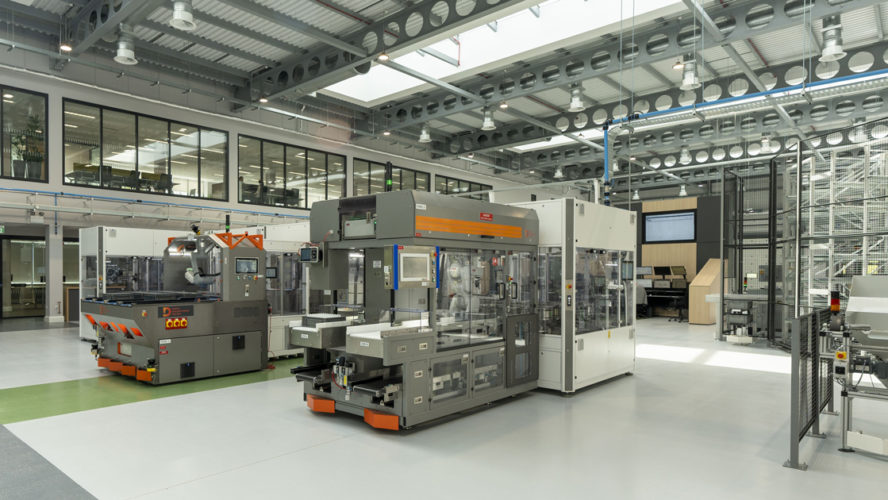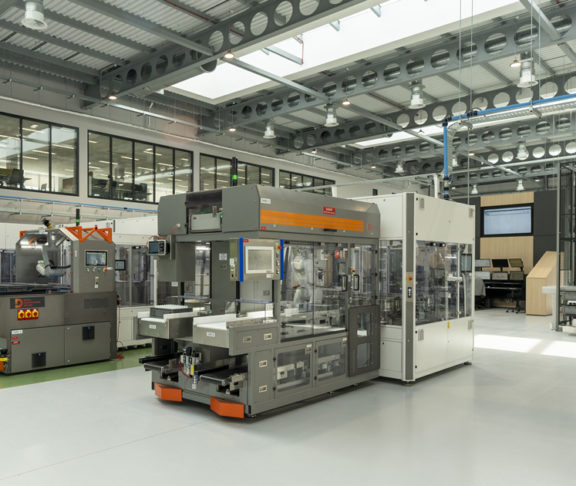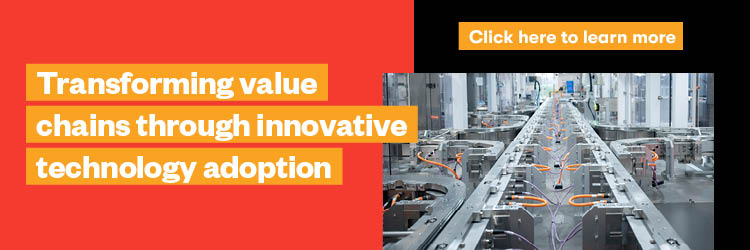
Domhnall Carroll
CEO, Digital Manufacturing Ireland
Successful data-driven manufacturers won’t just need to employ cutting-edge technology. They will also require human-centric skills and workforces that are adaptive to change.
What will the factories of the future look like? Increasingly, they will become both data-driven and human-centric. From an outside perspective, that might sound like a contradiction of terms, agrees Domhnall Carroll, CEO, Digital Manufacturing Ireland — an national industry-led organisation focused on driving digital technology adoption across Irish-based manufacturing. However, he argues that to become data-driven — which is key to success — an organisation will require three things: strategy, technology and people.
Supportive role of effective technology
Automation has always tended to remove the influence of people from manufacturing. Think about robots on assembly lines, for instance. What’s coming next will be a game-changer, predicts Carroll. “New technology — such as AI — will transform how people work in manufacturing,” he says. “It will equip them with all the data they need to become more informed and enable them to use their human creativity. Tech’s role will be to support humans by giving them the tools they need to do the best job possible.”
Latest technology will help humans make big decisions
Technology will still be employed to take care of drudge work — which is as it should be, says Carroll. “That will continue and leave humans to concentrate on answering questions, such as: ‘How can manufacturing processes be improved?’ ‘What makes a good product?’ and ‘What builds a reliable and resilient supply chain?’ It’s a paradigm shift that will invite increasing numbers of people into manufacturing. So, the industry is set to become more human, not less human.”
Tech’s role will be to support humans by giving them the tools they need to do the best job possible.
While the latest technology will have a sizeable impact on operations and be the leverage for scale, it won’t be running the show. “In the short-term, I expect to see AI making lots of small decisions, but the big ones will still be made by humans,” says Carroll. “Manufacturing sites won’t become ‘AI sites.’ They will be managed, staffed and run by people who are very good at making lots of complex manufacturing judgments — and AI will help them in that task.”
Building human-centric skills in manufacturing organisations
This is why it’s so important to build human-centric skills in manufacturing organisations and create workforces that are adaptive to change. “We find that the organisations we work with understand the need to optimise their resiliency and flexibility, especially when they think about what’s happened over the last five years,” says Carroll. “They also know that more change is coming.”
The best way to deal with that change is to have a workforce that can roll with the punches and deal with anything that comes their way. “That’s the skillset and the culture that companies are asking us to support them with the most,” reveals Carroll. “In fact, the thing that really excites them is when we start talking about the ‘people’ aspect of manufacturing. Our clients realise that cutting-edge technology is important — but successful adoption of that tech is crucial. They tell us: ‘If we bring new tech in, but our people don’t want it, like it or use it, then we might as well not have it.’ For us, it’s about presenting them with the best solution, not simply a technology one.”
Working collaboratively to solve manufacturing challenges
The challenges that manufacturing faces can’t be solved alone, which is why DMI has established various collaboration groups for industry players to get together to share knowledge. “To address problems around technology, people and becoming a data-driven organisation, it’s vital that companies work together to inform the discussion and develop solutions,” says Carroll. “There’s a saying: ‘If you want to go fast, go alone. If you want to go far, go together.’ Well, in the Irish manufacturing industry, we’re going far — and together.”



